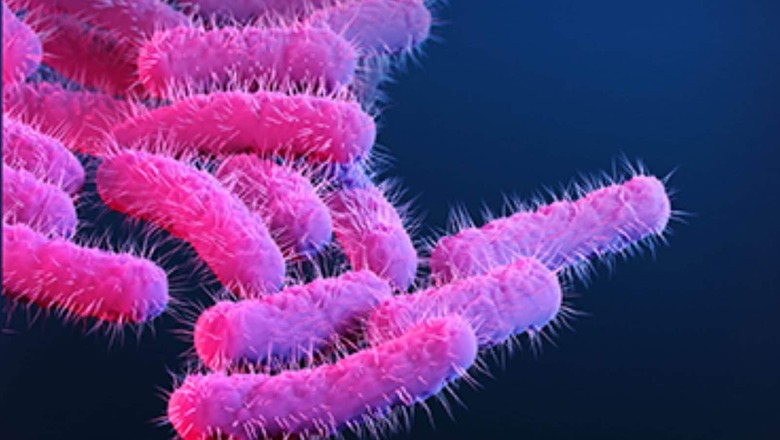
views
The Kerala health department has finally zeroed in on the culprit which claimed the life of a 16-year-old girl in Kasargod who died due to food poisoning — the Shigella bacteria.
The presence of the bacteria was confirmed in the blood and faeces of people undergoing treatment after they consumed chicken shawarma from an eatery at Cheruvathur in Kasaragod last week. Police have arrested the owner and staff of the eatery.
The Kerala High Court has taken cognisance of the incident and sought the state government’s stand on it.
Here’s all you need to know about the bacteria:
What is shigella?
Shigella is one of the leading bacterial causes of diarrhoea worldwide and is an intestinal infection caused by a family of bacteria. Some of the common symptoms of Shigella infection are diarrhoea, abdominal pain, fever, vomiting, tiredness and blood in stool.
The infection spreads easily as it takes only “a small number of bacteria to make someone ill”, says the US Centres for Disease Control and Prevention (CDC).
The disease is easily spread by direct or indirect contact with the excrement of the patient. You can get the infection if you swim or take a bath in contaminated water.
What about the spread?
The outbreaks are more common and severe during pregnancy, in children under five years of age, and in those with weakened immune systems.
There are four types of Shigella bacteria that affect humans, according to CDC. These are Shigella sonnei, Shigella flexneri, Shigella boydii, and Shigella dysenteriae. The fourth type causes the most severe disease because of the toxin it produces.
What are the symptoms?
Diarrhoea (often containing blood or mucous)
Stomach pain or cramps
Fever
Nausea or vomiting
When should you see a doctor?
A person who has severe diarrhoea — which means 20 or more bowel movements in a day — must see a doctor within a day; a patient with mild diarrhoea may wait for three to four days before going to a doctor.
If you or your child develops bloody diarrhoea or diarrhoea severe enough to cause weight loss and dehydration, you must contact your doctor. If the infected person is running a fever of 101 degree F (38 deg C) or higher, one must immediately approach a hospital.
How common is death due to shigella?
Doctors say that the infection does not generally kill, unless the patient has a weak immune system or the pathogen is resistant to the antibiotics that are prescribed.
What about precautions?
Like in case of other food and water-borne diseases, wash your hands thoroughly before and after a meal. Ensure the water that you drink is clean and the fruits and vegetables are fresh.
Ensure products such as milk, chicken, and fish that have a higher tendency to spoil must be kept at a proper temperature and also cooked well.
Read all the Latest India News here



















Comments
0 comment